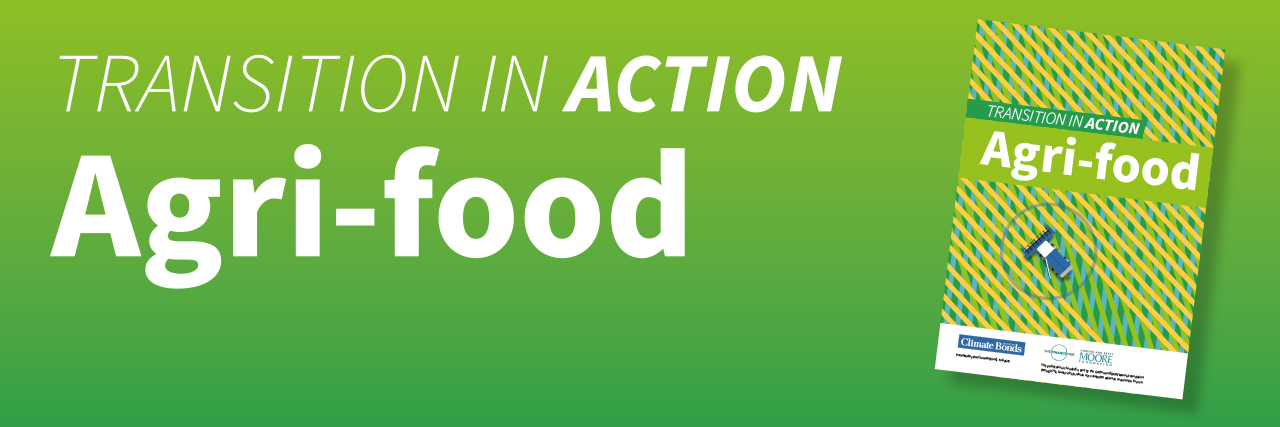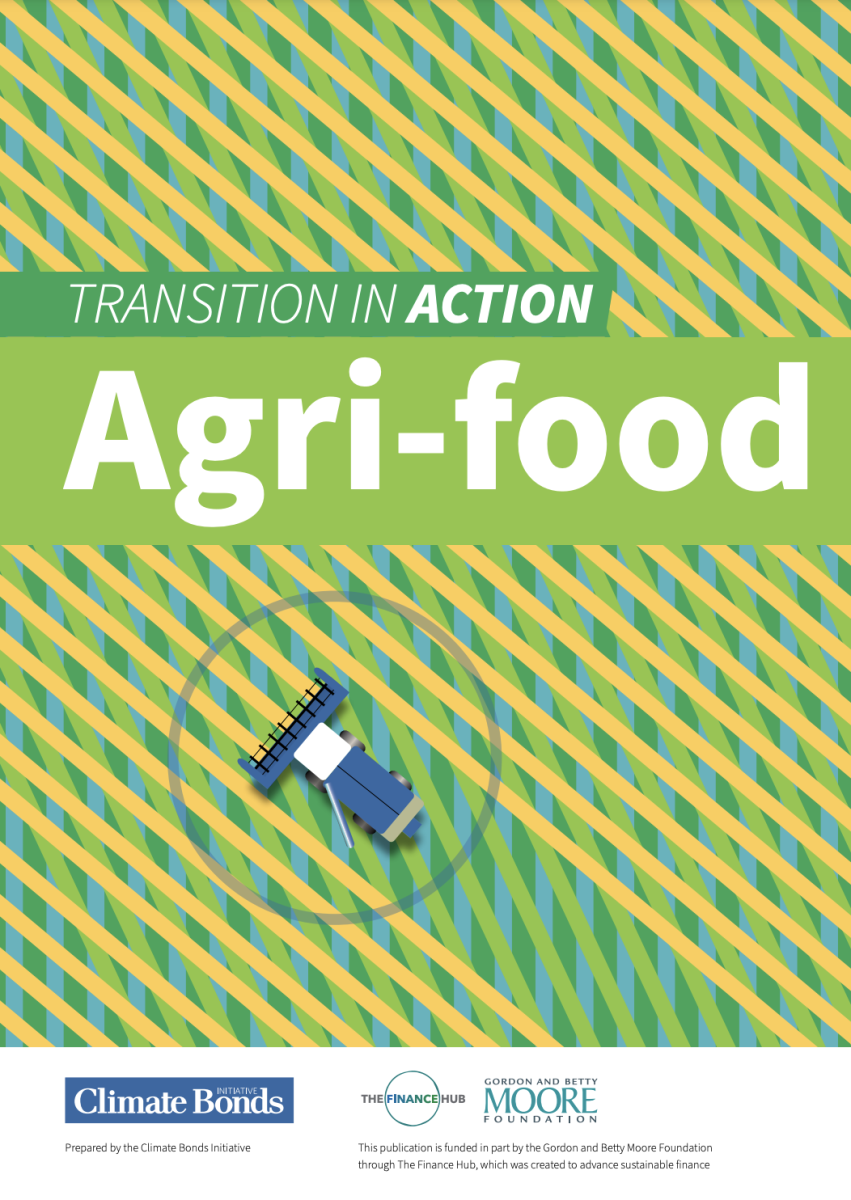
Agri-Food Sector Set for Important Decade
With the global population projected to reach close to ten billion by 2050, the agri-food sector has to expand. Balancing current and future production with nature preservation will be a major challenge.
The Agriculture, Forestry and Other Land Use (AFOLU) sector is deeply impacted by the climate and biodiversity crisis but is also contributing approximately 30% of the total global anthropogenic greenhouse gas (GHG) emissions.
Adequate financial mechanisms are required to help farmers reverse the impact of food production on the environment and ensure resilience to climate risks.
Climate Bonds Initiative (Climate Bonds) announces the release of its highly anticipated report, 'Transition in Action Agri Food'. This comprehensive document delves into the intricate landscape of sustainable finance within the Agriculture, Forestry and Other Land Use (AFOLU) sector, offering key insights and strategies to both real economy actors and financial institutions for raising transition finance and drive the systemic change.
USD400bn Needed per year.
In 2023, The International Fund for Agricultural Development (IFAD) estimated that USD400bn is needed annually until 2030 in rural development and across food systems. While substantial, the amount is not that material compared to the amount of financing going already to the agri-food sector from both public and private sources.
Transition finance can fill in the gap: In 2023, Climate Bonds recorded volumes of aligned green, social, and sustainability bonds of USD871.9bn across all sectors. Among those, volumes with UoP earmarked for sustainable financing frameworks that include agriculture or fishery projects reached USD160bn. A further USD6.2bn in cumulative volumes from issuers operating in the agri-food sector were identified in sustainability-linked bonds, of which Climate Bonds classified USD3.6bn as fully aligned.
The challenge facing the transition of the sector is not primarily driven by a lack of available financing at global scale, but rather by a historical lack of efficient financial mechanisms to channel national and international capital towards the millions of farmers and Small and Medium Enterprises (SMEs). The scaling of impactful transition finance instruments can reverse this lack of funding.
Key Messages from the Report:
1. The Transition is Underway: The report highlights the ongoing transition towards sustainability within the AFOLU sector. It underscores the importance of sustainable finance in supporting this transition and outlines the critical role of various stakeholders, from start-ups to financial institutions, in driving implementation.
2. Climate Bonds Sector Criteria Define Sustainable Debt Instruments: Non-financial corporate entities and banks are encouraged to explore the latest Climate Bonds sector criteria on Agriculture Production (Crop and Livestock, to be released in Q3) and Deforestation and Conversion Free (DCF) Sourcing which transpose local financing needs into a harmonised sustainable finance framework aligned with IPCC recommendations.
3. Farmers Need Access to Sustainable Debt: The report stresses the importance of sustainable finance at the farm level, advocating for finance solutions that support farmers and lift them out of poverty. It emphasizes the need for direct payments and sustainable supply chain finance to scale sustainable initiatives effectively.
4. Innovative Financing Solutions are Needed: Collaboration among stakeholders along the value chain is key to accelerating the transition. The financial sector can play a significant role by offering sustainability-linked financing solutions and fostering cross-value chain collaborations.
5. Key Performance Indicators Must be Material: Sustainability-linked instrument KPIs should capture the complexity of the sector and not be restricted to scope 3 GHG emissions. The report provides examples of alternative KPIs tailored to each actor along the value chain.
6. Climate Transition Finance for AFOLU Sector: Climate transition finance can be instrumental in supporting the AFOLU sector to become part of the climate solution, improve food security, and raise living standards. However, impactful investment must incorporate climate, green, and social considerations.
The Last Word
Read the full report for valuable insights and recommendations for leveraging sustainable finance to support the transition towards a more resilient and sustainable agri-food system. Climate Bonds is developing Agri-Food Transition Criteria, focusing on Agriculture (Crop and Livestock production) and Deforestation and Conversion Free (DCF) Sourcing. Concurrently, we are introducing a new label for certified agri-food entities, marking compliance with DCF practices.
Join us in the consultation process by following the link here.
Stay tuned for more in our 'Transition in Action' series by subscribing to our blog!
'Til next time
Climate Bonds

